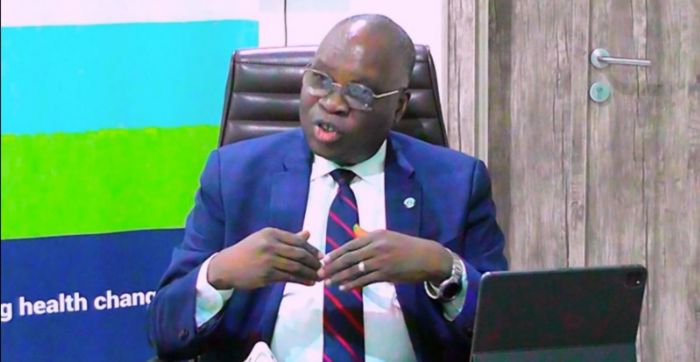Despite significant progress in managing HIV/AIDS across Nigeria, the sustainability of these gains remains fragile, highly dependent on foreign donor funding.
This was the key message from Prosper Okonkwo, the founding CEO of APIN-Public Health Initiatives, in a recent interview with BusinessDay, where he underscored the critical need for Nigeria to establish robust, domestically funded health systems.
APIN, which emerged from Harvard T.H. Chan School of Public Health’s AIDS Prevention Initiative in 2000 and became an indigenous NGO in 2016, has been a pivotal force in Nigeria’s HIV response. Under Okonkwo’s leadership, the organization currently supports over 310,000 clients on HIV treatment—approximately 20 percent of all patients on treatment in Nigeria.
Cumulatively, APIN has cared for more than 500,000 HIV patients, contributing significantly to a 48 percent reduction in new infections and a 52 percent reduction in deaths between 2010 and now. Their comprehensive programs span prevention, treatment, monitoring, and data management across states like Benue, Plateau, Oyo, Ondo, and Ogun.
Okonkwo highlighted that while HIV management has matured and tools are widely available, a “knowledge-behaviour gap” persists. Despite over 95 percent of Nigerians being familiar with HIV issues, prevention efforts face challenges.
The widespread availability of free drugs has reduced the visible fear associated with the virus, leading to less attention on prevention. Additionally, socioeconomic factors mean that even with free medication, many struggle with the cost of transportation to access clinics.
A major concern for APIN is the shifting landscape of global funding, particularly from the U.S. government through initiatives like PEPFAR. Okonkwo revealed that some programs faced immediate cessation due to executive orders from the new U.S. administration, underscoring the “fragility of the dependence on donor funding.”
In response, APIN has diversified its operations, leveraging its robust systems in areas like data management to venture into maternal and child health, nutrition, and even commercial consulting through its “for-profit” APIN Medical Laboratory.
The CEO emphasized that assured local access to drugs and test kits, possibly through local production, is vital for the program’s continuity should foreign aid cease.
He noted that while discussions are ongoing at the national level to certify local production plants, the recent funding uncertainties serve as a stark warning.
APIN’s work also extends to critical national projects, such as managing the National Data Repository through its Public Health Information, Surveillance, Solutions, and Systems (PHIS 3) Project.
This project is currently conducting a new National AIDS Indicator and Impact Survey (NAIIS) in selected states, including Rivers State**, Lagos, and Akwa Ibom, though some activities have been temporarily paused due to funding reviews.
Okonkwo confirmed APIN is actively engaging the Nigerian government to explore possibilities for domestic funding for such essential activities.
Despite advances in treatment, stigma remains a significant challenge, manifesting as self-stigma among patients and even stigmatization within the health system.
Also see: Police Probe Diogo Jota Crash, Point to Excessive Speed
APIN combats this through community engagement, utilizing “mentor mothers” (HIV-positive clients who serve as champions), and creating safe spaces like weekend and adolescent clinics.
On the issue of multidrug-resistant tuberculosis (MDR-TB), which disproportionately affects HIV patients, APIN supports the national TB control program by improving early diagnosis systems using GeneXpert machines and focusing on infection prevention and control.While APIN does not directly manage MDR-TB treatment due to its high cost and the need for strict regulation, it collaborates to ensure early detection and proper referral.
Okonkwo candidly shared his biggest challenge over two decades: the continuous “fluidity and uncertainty of the funding environment.”
He conveyed the immense burden of ensuring stability for APIN’s committed workforce amidst unpredictable donor support, reiterating the urgent need for Nigeria to develop sustainable, indigenous funding mechanisms for its public health initiatives.



